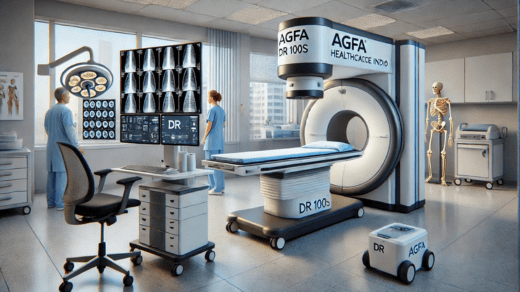1. What is Pulmonary Nodular Amyloidosis
Pulmonary nodular amyloidosis is a rare condition characterized by the abnormal deposition of amyloid protein in the lungs. Amyloid protein fibrils build up in small nodules within the lung tissue, affecting its function.
2. Causes of Pulmonary Nodular Amyloidosis
The exact cause of pulmonary nodular amyloidosis is often unknown. However, it can be associated with certain underlying conditions such as chronic inflammatory diseases, autoimmune disorders, or plasma cell dyscrasias.
3. Symptoms of Pulmonary Nodular Amyloidosis
Symptoms of pulmonary nodular amyloidosis may vary but commonly include shortness of breath, cough, chest pain, fatigue, and unintentional weight loss. Some individuals may remain asymptomatic for a long time.
4. Diagnosis of Pulmonary Nodular Amyloidosis
Diagnosing pulmonary nodular amyloidosis typically involves a combination of imaging tests such as chest X-rays, CT scans, and PET scans, along with a biopsy of the affected lung tissue for microscopic examination.
5. Treatment Options
Treatment for pulmonary nodular amyloidosis aims to manage symptoms and halt the progression of the disease. This may involve medications to reduce inflammation, respiratory therapy, or in severe cases, lung transplantation.
6. Prognosis
The prognosis for individuals with pulmonary nodular amyloidosis varies depending on factors such as the extent of lung involvement, the presence of underlying conditions, and the response to treatment. Early diagnosis and intervention can improve outcomes.
7. Complications
Complications of pulmonary nodular amyloidosis may include respiratory failure, pulmonary hypertension, or secondary infections. Regular monitoring and prompt management of complications are essential for optimal care.
8. Research and Advances
Ongoing research into the pathogenesis and treatment of pulmonary nodular amyloidosis continues to improve our understanding of this rare condition. Clinical trials and experimental therapies offer hope for future treatment options.
9. Supportive Care
Living with pulmonary nodular amyloidosis can be challenging, both physically and emotionally. Supportive care services, including counseling, support groups, and assistance programs, can help individuals cope with the impact of the disease.
10. Lifestyle Modifications
Making healthy lifestyle choices, such as quitting smoking, maintaining a balanced diet, and staying physically active, can improve overall well-being and help manage symptoms associated with pulmonary nodular amyloidosis.
11. Monitoring and Follow-up
Regular follow-up appointments with healthcare providers are crucial for monitoring disease progression, assessing treatment efficacy, and addressing any emerging symptoms or complications promptly.
12. Patient Education
Educating patients and their caregivers about pulmonary nodular amyloidosis, its symptoms, treatment options, and self-care strategies empowers them to actively participate in their healthcare and make informed decisions.
13. Collaborative Care
Managing pulmonary nodular amyloidosis often requires a multidisciplinary approach involving pulmonologists, rheumatologists, pathologists, radiologists, and other healthcare professionals working together to provide comprehensive care.
14. Genetic Counseling
In cases where pulmonary nodular amyloidosis is associated with genetic mutations or hereditary factors, genetic counseling can help individuals understand their risk, explore testing options, and make informed family planning decisions.
15. Palliative Care
For individuals with advanced pulmonary nodular amyloidosis or those experiencing significant symptoms, palliative care focuses on improving quality of life, managing symptoms, and providing emotional support for patients and their families.
16. Patient Advocacy
Engaging in patient advocacy efforts raises awareness about pulmonary nodular amyloidosis, advocates for research funding, and promotes access to quality care and support services for affected individuals and their families.
17. Treatment Challenges
Despite advances in understanding and managing pulmonary nodular amyloidosis, challenges such as limited treatment options, disease heterogeneity, and variable response to therapy remain areas of ongoing concern.
18. Clinical Trials
Participating in clinical trials investigating new treatments or therapies for pulmonary nodular amyloidosis offers eligible patients access to cutting-edge care and contributes to the advancement of medical knowledge in this field.
19. Emerging Therapies
Emerging therapeutic approaches for pulmonary nodular amyloidosis, including targeted drug therapies, immunomodulatory agents, and gene therapies, hold promise for more effective and personalized treatment strategies in the future.
20. Public Health Implications
Raising awareness about pulmonary nodular amyloidosis among healthcare professionals, policymakers, and the general public can facilitate early diagnosis, improve access to care, and enhance support services for affected individuals.
21. Global Impact
While pulmonary nodular amyloidosis is considered rare, its global impact extends beyond individual patients to their families, communities, and healthcare systems, highlighting the importance of international collaboration and advocacy efforts.
22. Empowering Patients
Empowering patients with pulmonary nodular amyloidosis through education, access to resources, and involvement in shared decision-making empowers them to actively manage their health and navigate the complexities of living with a rare disease.
23. Future Directions
Continued research into the underlying mechanisms of pulmonary nodular amyloidosis, along with the development of novel diagnostic tools and targeted therapies, holds promise for improved outcomes and quality of life for affected individuals in the future.
24. Hope and Resilience
Despite the challenges posed by pulmonary nodular amyloidosis, the resilience and determination of patients, caregivers, and healthcare professionals offer hope for better treatment options, increased awareness, and ultimately, a brighter future.
25. Conclusion
In conclusion, pulmonary nodular amyloidosis is a rare but potentially serious condition characterized by the abnormal deposition of amyloid protein in the lungs. Early diagnosis, multidisciplinary care, and ongoing research are essential for improving outcomes and quality of life for affected individuals.





